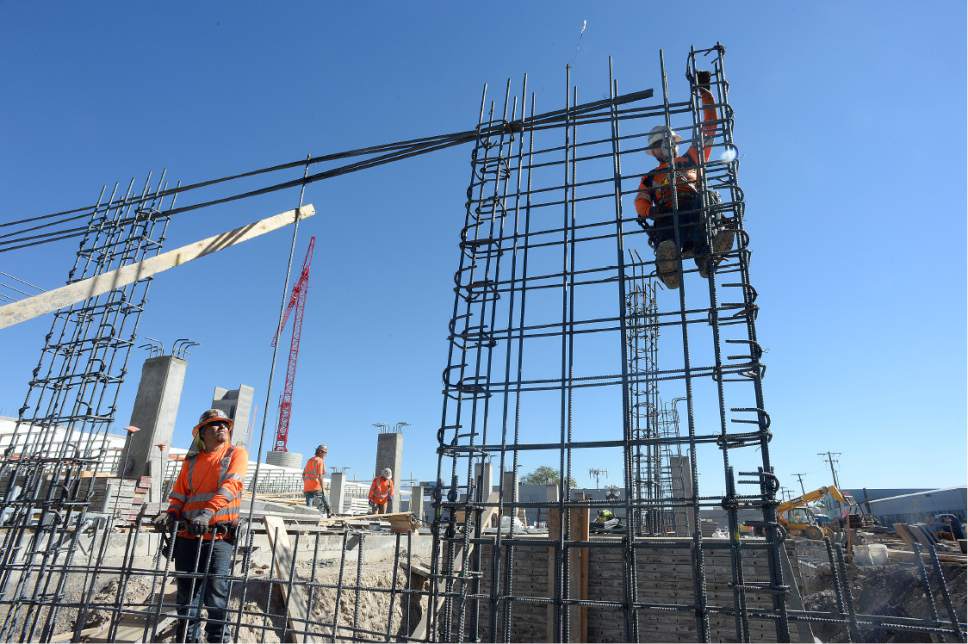This is an archived article that was published on sltrib.com in 2016, and information in the article may be outdated. It is provided only for personal research purposes and may not be reprinted.
Salt Lake City's Redevelopment Agency won't plunge immediately into spending nearly $18 million set aside for affordable housing — despite calls for swift action from community leaders.
Instead, the City Council, in its capacity as the RDA board, opted Tuesday to delay using the newly amassed pile of money while it waits for a wider overhaul of budgeting at the urban-renewal agency, a review aimed at making RDA finances more transparent.
Councilwoman Lisa Adams, who heads the RDA board, said the pause also would let city officials put in further study on how to spend those housing funds for maximum benefit.
"We don't want to get ahead of ourselves," Adams told colleagues. "We want to see what the whole picture looks like."
Tuesday's move likely will push until January the allocation of cash newly set aside to address the city's affordable-housing shortage, a gap of at least 7,500 dwellings that officials say has reached crisis proportions.
Frustration over housing and the plight of the homeless has been running high for months. Two dozen housing advocates and church leaders gathered Friday at City Hall to urge the council and Mayor Jackie Biskupski to move faster on bringing new housing to market that is within reach of residents earning modest and low wages.
But one of their leaders, longtime housing activist Tim Funk, reacted Tuesday by saying the delay was actually a good sign.
"They want to move," said Funk, a director for Crossroads Urban Center, "and they've got an idea of what they want to do."
In a meeting in mid-October, council members voted to divert cash from dozens of RDA budget line items earmarked for other projects and put the money toward easing problems with housing and the homeless.
They ultimately set aside $12 million from RDA accounts to buy land for four new homeless-service facilities and another $18 million for affordable housing.
The Oct. 18 budget changes drew harsh criticism from Biskupski, who called the actions "random" and misguided — even though she and the council have placed affordable housing among their top priorities.
Council members countered that the RDA budget transfers came after years of discussion on affordable housing — and for want of any clear policy direction on the issue from Biskupski.
Backing a proposal on Tuesday from Biskupski's newly hired Economic Development Director Laura Fritts, the RDA board agreed unanimously to the spending delay on assurances that it would produce a new and more understandable RDA "budget template," possibly by January.
Adams said the time would allow study of how rearranged RDA budget priorities might affect the agency's efforts to redevelop blighted properties in the city's Depot District, adjacent to homeless encampments and shelters near Rio Grande Depot.
The council is looking at an array of measures to improve the city's housing crunch, which comes amid a historic construction boom of thousands of market-rate apartments.
The council is considering implementing a new voucher system through the city's Housing Authority aimed at subsidizing rents to keep struggling residents in their homes, as well as new zoning and land discounts intended to nudge developers to bring more affordable units.
Longer term, it is also discussing a new property-tax levy that would go before voters to fund up to $80 million in incentives for affordable-housing development.



